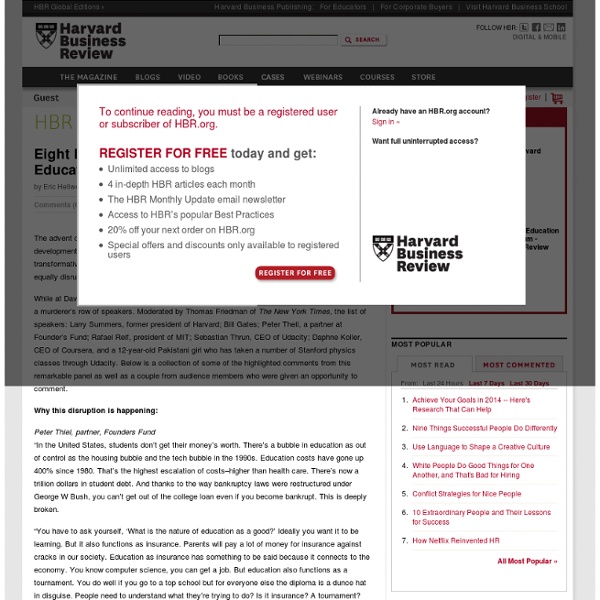Is Interaction Design a dead-end job?
I think the issue is that Interaction Design is more a SKILL than a position. Face it, anyone can learn Photoshop, Flash, and Dreamweaver, but it takes someone with some knowledge of Interaction Design to make a good layout of a web site or interface. What needs to happen is that Interaction Design becomes more the way of a skill, a talent that's added on to an already there position. So the Interactive Art Director needs to know more than just drawing up a layout. That or the Quality Assurance person is also versed on Interactive Design and Usability and thus will offer more to the table to make the right design. Finally, the client needs to be better educated and put in a small level of control. I guess I see it as more of a craft than a skill or a job. Great subject--it's healthy to stir up things from time to time! It's funny, as I was reading this, I kept thinking: Yes, finally, IxD as a separate practice is fading, and thank goodness for that. Thanks for your thoughts.
The best interface is no interface
The actual work-flow of the NFC enabled Google Wallet is actually already much simpler than what you present. 1. Unlock phone, 2. Tap NFC enabled payment device with your phone, 3. @Matthew: Thanks. The opportunity for No UI in automobiles is ripe, and already pretty rich. @Nate Thanks! Great writeup. @Kurt: Thanks. Absolutely love this article. @Mike: Thanks for your comment and passing along the article. Great article, I agree we don't always need a digital interface. @Rachel: Thanks! I think the call to simplify and remove interfaces when they're not needed is great, and I would love to see more designs come out that allow me to fluidly interact with the complexities of the real world. @Jeff: I think you nailed it with this phrase, "Sometimes we may able to get away without having a UI if our intentions can be sensed reliably, but other times we will need to have some sort of UI." You just joined the world's greats! @Sunil: I'm speechless. Interesting thoughts. Interesting article.
Coding An HTML 5 Layout From Scratch
Take a d.school class
Applications are now closed. See each class page for more info. Core Classes In a core class you can expect a well-rounded design thinking experience that will flex your skills in most (if not all) core design thinking abilities. Advanced Design StudioCreativity and Innovationd.org :: prototyping organizational changeDesign for Extreme Affordability (Ongoing: Winter + Spring)Design Garage (Ongoing: Winter + Spring)Design Thinking for Public Policy InnovatorsDesigning Solutions to Global Grand ChallengesFrom Play to InnovationLaunchpadMethods in Systems ThinkingOrganizational Psychology of Design Thinking Boost Classes Boost classes help you enhance your design thinking toolkit. they aren’t comprehensive introductions to design thinking, rather they focus on 2-3 key abilities and offer a rigorous learning experience that will amplify your design thinking chops no matter your experience level or areas of interest. Creative GymVisual Design Fundamentals Pop-Up Classes
30 Useful Infographics for Web Designers
Typically when it comes to learning something new within web design you have to refer to either the accompanied detailed documentation, the read-me or, if you are lucky, to a quick reference cheatsheet. Each of these options are really useful, but none have the ability to give you a super-easy method to quickly understand what is going on like a well designed and eye-pleasing infographic. So, do you want to learn something new today? Why not have a look at the 30 fantastic web design related infographics we have for you below. The Growing Importance of Mobile Website Optimization Source WTF is HTML5 and Why We Should Care? Source What Beautiful HTML Code Looks Like Source JavaScript Framework Popularity Source CSS Infographic – Interesting Facts and History Source Quick Look into CSS3 Properties Source Interactive Git Cheatsheet Source The History of Programming Languages Source The Evolution of the Web (Interactive) Source Web Accessibility for Designers Source Online Testing Essentials Source Source Source
10 TED Talks That Will Change the Way You Communicate
August 1st, 2012 By: Alvina Lopez Even the most eloquent of public and private speakers could always stand to tweak their communication skills just a little bit. Elizabeth Lesser: Take "the Other" to lunch: If communications with people on opposite sides of political, cultural, religious and other common divides so often proves extremely problematic, try Elizabeth Lesser’s simple-but-effective approach. Joan Halifax’s Buddhism and extensive work providing care and comfort to dying individuals in various institutions offers her an intense glimpse at how small, compassionate gestures bring almost supernova levels of light to one person’s world.
41 Female Founders Every Entrepreneur Should Know
Women comprise 47% of the U.S. workforce, but just 25% of the STEM workforce. While the tech sector has a reputation of being occupied by white males, women are making a go at careers in STEM fields. The success of prominent female leaders such as Facebook's Sheryl Sandberg and Yahoo's Marissa Mayer are bringing more attention to women in the tech sphere. But beyond the Sandbergs and the Mayers, there's a crop of women who are not only leading, but also launching tech startups. Below, we highlight 44 accomplished female founders; with businesses ranging from fashion and ecommerce to careers and social networks, these movers and shakers are changing the face of tech. Alexa von Tobel, CEO and Founder, LearnVest Von Tobel dropped out of Harvard Business School to launch LearnVest after winning an Astia business plan competition. Sukhinder Singh Cassidy, Founder and Chairman, Joyus Laura Fitton, Founder, oneforty Olga Vidisheva, Founder, Shoptiques Kass Lazerow, Co-Founder & COO, Buddy Media



